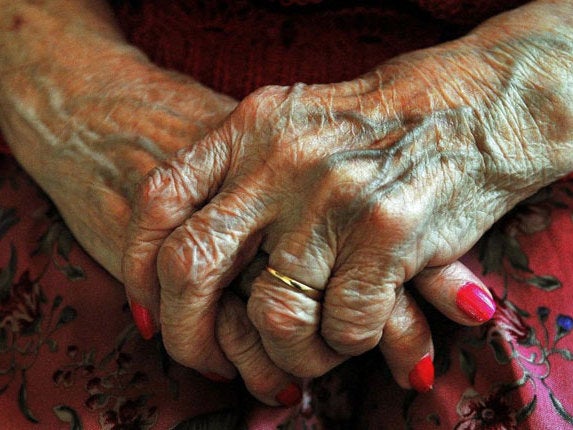Fury as government delays promised social care reform for sixth time amid Brexit gridlock
Ministers content to let ‘dithering and delays’ increase hardship and ‘cost lives’ of vulnerable elderly and people with disabilities, critics say

The government has failed for the sixth time to hit its own deadline to publish details of care system reforms for adults with disabilities and the elderly, because of the Brexit gridlock wracking the Commons.
Charities claimed lives were being put at risk by minsters’ “dithering and delays” and warned vulnerable people denied care, such as those with learning disabilities, were at increased “risk of abuse and neglect”.
Health secretary Matt Hancock told MPs in January that he “intends [to publish] before April” the social care green paper containing the government’s plans to make care safer and financially sustainable.
On Friday the Department of Health and Social Care told the The Independent it had no plans to publish the document before Monday 1 April.
Age UK said this was now the sixth time ministers’ assurances have fallen flat since the originally scheduled publication date of summer 2017 was missed.
Since then, the charity said care users had faced delays and increasingly unjustified hurdles to access support which helps them stay healthy, independent and out of hospital. It claimed some 50,000 people had died while waiting for support.
“Social care has become a crisis of the government’s own making,” said George McNamara, director of policy at charity Independent Age.
“The government seems content to allow vital care and support for the most vulnerable older people to be rationed or cut, without any recognition that their continuous dithering and delays are increasing older people’s hardship, impacting on their health and, in some cases, costing lives.”
Learning disabilities charity Mencap said there were 1.4 million people with a learning disability in the UK but only 178,000 who received local authority support. This increased the chances of care users coming to harm and ultimately creating costs and pressure for the NHS and criminal justice system, it said.
“The devastating cuts to local authority funding over the last five years mean that more and more people with a learning disability are unlawfully dropping out of the social care system,” said Kari Gerstheimer, Mencap’s director of information and advice legal services.
“Those that are receiving social care are, all too often, seeing packages of support squeezed.
After the last delay, before Christmas, Mr Hancock rebuffed claims that the manifesto pledge on social care had been culled because of Brexit pressures – saying that the programme was receiving its “finishing touches”.
Unlike the NHS, social care support with things like washing, preparing meals and living independently is not free.
Local authorities means test, based on the value of an individual’s home and savings, so anyone with assets worth more than £23,250 must part-fund their care and there is no upper limit to costs.
The Conservatives shelved a planned lifetime cap on care expenses and an overhaul of means testing, recommended by the Dilnot Commission set up by David Cameron. Theresa May then U-turned on her promise to raise the threshold to £100,000 after plans to make older people sell their home to pay for domiciliary care were dubbed a “dementia tax”.
Meanwhile councils, who have faced repeated budget cuts since 2010, are struggling to fund rising numbers in need of support and this is heaping pressure on the wider NHS.
The green paper will also need to answer a mounting workforce challenge and shore up links with the NHS to make checkups and discharge from hospital more seamless.
“With every passing day, the mirage of the Tory government’s green paper and a long-term funding settlement for social care seems further and further away,” Barbara Keeley MP, Labour’s shadow minister for social care.

A spokesperson for the Department of Health and Social Care said: “We have provided local authorities with access to up to £3.6bn more dedicated funding for adult social care this year and up to £3.9bn for next year.
“We will set out our plans to reform the social care system for adults of all ages at the earliest opportunity to ensure it is sustainable for the future.”
Join our commenting forum
Join thought-provoking conversations, follow other Independent readers and see their replies
Comments
Bookmark popover
Removed from bookmarks